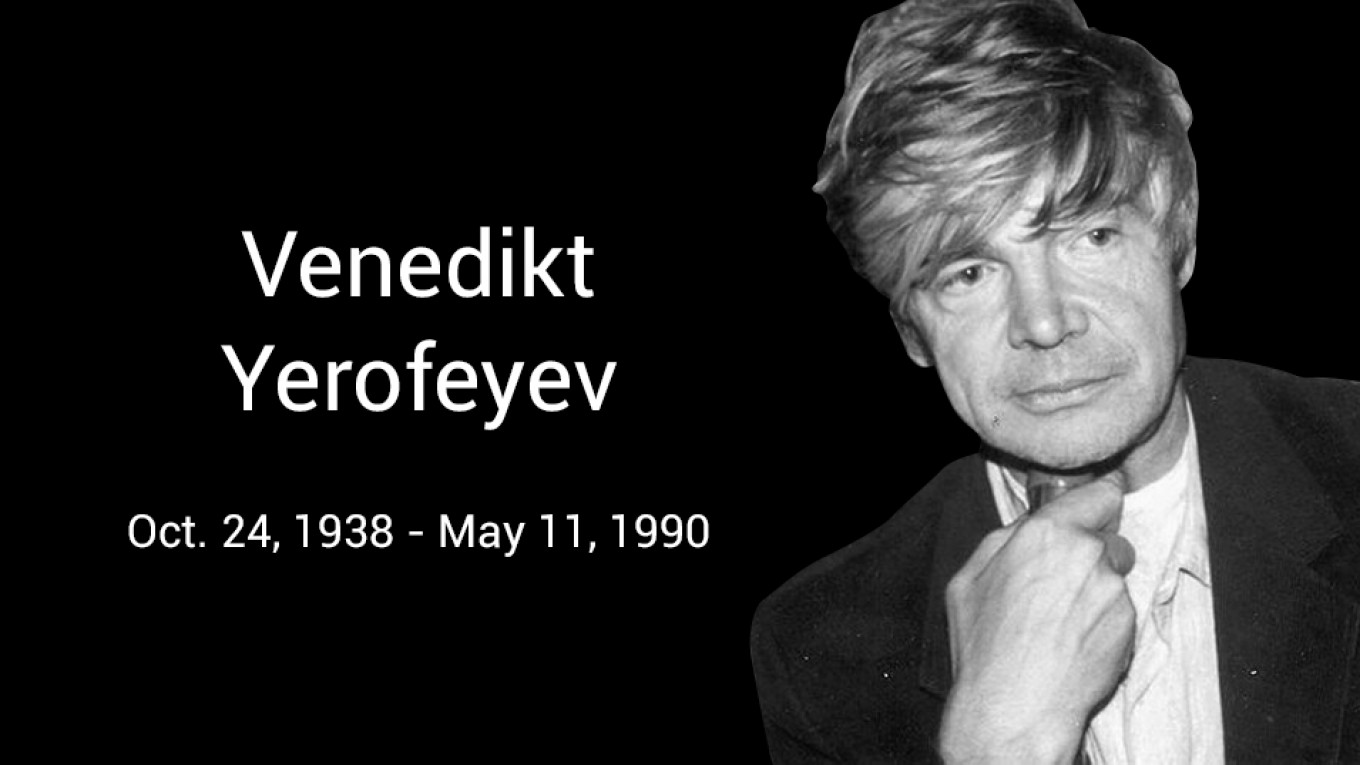Venedikt Yerofeyev was born near Murmansk on Oct. 24, 1938, the son of a former political prisoner. After graduating from grade school in Murmansk, he began language and literature studies at Moscow State University, but was soon expelled for failure to fulfill his military service requirements.
For much of the rest of his life, Yerofeyev worked a variety of low-skilled jobs, from shoveling coal in a boiler room and loading produce in a food store to serving as the duty officer in a police station and working as a librarian. He often worked on expeditions in the Soviet hinterlands.
Yerofeyev had been writing fiction since early childhood and continued as an adult without any success until his novel “Moscow-Petushki” (also translated as “Moscow To the End of the Line”) was completed in 1970. The story of riding the commuter train to see his son at the last station stop but never making it — each trip dissolves in drinking, story-telling and philosophical discussions — was acclaimed as the first post-modernist Russian novel. It was, however, only published officially in the Soviet Union in 1989.
Yerofeyev is said to have written a novel about composer Dmitry Shostakovich that was lost and never recovered. He finished a play called “Walpurgisnacht, or the Steps of the Commander” and left many notebooks filled with writings. But “Moscow-Petushki” remained his singular achievement.
Yerofeyev died of throat cancer in 1990 and was buried in Kuntsevo Cemetery.
A Message from The Moscow Times:
Dear readers,
We are facing unprecedented challenges. Russia's Prosecutor General's Office has designated The Moscow Times as an "undesirable" organization, criminalizing our work and putting our staff at risk of prosecution. This follows our earlier unjust labeling as a "foreign agent."
These actions are direct attempts to silence independent journalism in Russia. The authorities claim our work "discredits the decisions of the Russian leadership." We see things differently: we strive to provide accurate, unbiased reporting on Russia.
We, the journalists of The Moscow Times, refuse to be silenced. But to continue our work, we need your help.
Your support, no matter how small, makes a world of difference. If you can, please support us monthly starting from just $2. It's quick to set up, and every contribution makes a significant impact.
By supporting The Moscow Times, you're defending open, independent journalism in the face of repression. Thank you for standing with us.
Remind me later.






